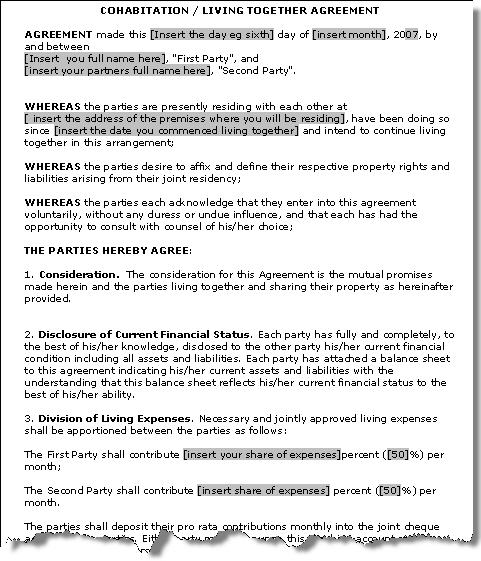If, as more and more people are choosing to do these days, you’re living with a partner and don’t intend to get married then a cohabitation agreement is definitely something to consider. Cohabitation agreements don’t even have to be for partners – they can also be used by friends or family members who live together, and can help to sort out much more than just property rights.
A Myth
Firstly, it should be noted that there is no such thing as a ‘common law wife’ in the UK – it’s a myth. If you split from a partner rather than a spouse then legally you are not entitled to anything. You and your partner have no legal rights over each other, your assets or property.

What Is A Cohabitation Agreement?
A cohabitation agreement is a signed agreement you can enter into to make things clearer in the event of a breakup or a bereavement – but be warned, these are not legally binding unless you seek legal advice first. This is because anyone can draw up an agreement and coerce their partner into signing it. If you each go through a solicitor to draw up two agreements and each sign the other’s, then later on there can be no accusations – ‘s/he made me sign it’.
Considerations
There are a few things that you should definitely consider including in your cohabitation agreement, though your individual circumstances will decide what you include and what you leave out. Most importantly, you need to consider whether you will rent or buy your house, and how it will be owned, who pays which bills, whether you are to have Power of Attorney for each other (so that one of you can make important decisions for the other should they become incapable of doing so for themselves), and how your possessions will be divided in the event of a breakup.
Bear in mind that although a cohabitation agreement works like a prenuptial agreement, it is not one and will not work like one if you do decide to marry later on. Also, it is not a will; you will need to draw that up separately.
On the one hand a cohabitation agreement can help to make everything clear from the outset so that there are no ambiguities, and can help to make a separation much less painful. They also work for any group of people living together, not just couples.
On the other hand they are not legally binding unless you’ve sought legal advice beforehand. This can be a little bit expensive (around £200), but much cheaper than legal fees if things go bad later on. They can also create tensions between partners, leading to the ‘don’t you trust me?’ conversation.
Cohabitation agreements are not for everyone, but they are certainly at least worth considering before you move in with a partner or friend. They can help protect you and your rights in the event of a breakup, but only if they’ve been drawn up and signed with the help of a solicitor.
This article was written in collaboration with Blanchards Law, specialists in family matters. For Advice on cohabitation or filing for divorce click here.

